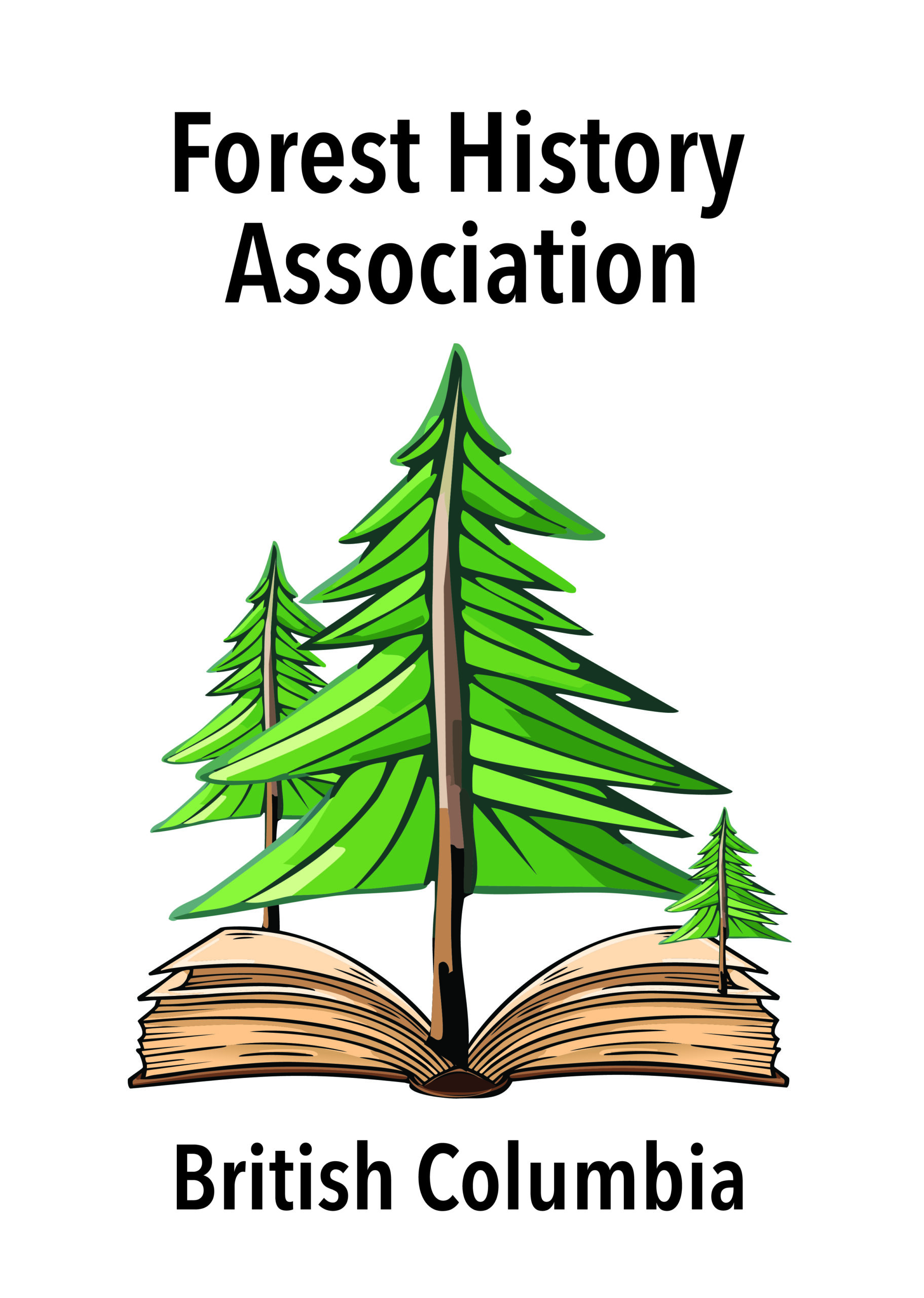
 The BC Forest History Association is pleased to host its final speaker of 2025: Keith Moore, RPF, a longtime resident of Haida Gwaii and a respected leader in forest policy, regulation, and certification. Tonight, December 16th, 7:00 pm on Zoom.
The BC Forest History Association is pleased to host its final speaker of 2025: Keith Moore, RPF, a longtime resident of Haida Gwaii and a respected leader in forest policy, regulation, and certification. Tonight, December 16th, 7:00 pm on Zoom.
In his presentation, “How the Long History of Forest Practices Regulation in BC Became a Key Part in a Recent BC Supreme Court Case,” Keith will explore how decades of statutory and voluntary forest practices regulation in British Columbia shaped the context and outcome of a recent court decision. Drawing on a career that spans research, policy development, enforcement, and auditing, he brings a rare, end-to-end perspective on how forest regulation actually works in practice.
Keith began his career with the Ministry of Forests Research Branch, followed by ten years with the BC Ministry of Environment. He was the inaugural Chair of the BC Forest Practices Board (1995–2000) and later became deeply involved with Forest Stewardship Council certification, conducting audits in forest regions around the world. Based in Daajing Giids, he continues to work with the Council of the Haida Nation and internationally through Assurance Services International.
Please register for a Zoom link here.
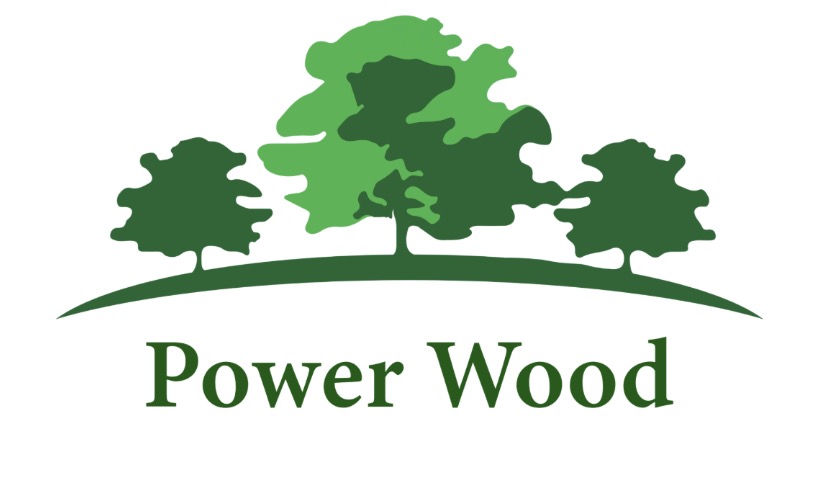 MACKENZIE COUNTY, Alberta — An agreement with Calgary-based PowerWood Canada Corp. will bring two new wood pellet manufacturing facilities to the Mackenzie County region in Northern Alberta, Canada. Josh Knelsen, Mackenzie County Reeve, announced Dec. 23 the agreement. “This is a leading-edge, first-of-its-kind project in Canada that turns wildfire-damaged wood into clean energy and helps reduce reliance on coal,” said Knelsen. The two facilities represent the potential for up to 300 direct jobs,” with many more across forestry, construction, transportation, and local businesses. …Construction on two sites is expected to begin by mid-2026. …The facilities will also see the introduction of Canada’s first steam explosion pellet production process – developed by leading industrial systems engineers Valmet and capable of producing black wood biofuel pellets with 94% less carbon release than coal. …PowerWood Canada plans to open a second Alberta plant and has developed expansion plans for further plants in New Brunswick and Nova Scotia.
MACKENZIE COUNTY, Alberta — An agreement with Calgary-based PowerWood Canada Corp. will bring two new wood pellet manufacturing facilities to the Mackenzie County region in Northern Alberta, Canada. Josh Knelsen, Mackenzie County Reeve, announced Dec. 23 the agreement. “This is a leading-edge, first-of-its-kind project in Canada that turns wildfire-damaged wood into clean energy and helps reduce reliance on coal,” said Knelsen. The two facilities represent the potential for up to 300 direct jobs,” with many more across forestry, construction, transportation, and local businesses. …Construction on two sites is expected to begin by mid-2026. …The facilities will also see the introduction of Canada’s first steam explosion pellet production process – developed by leading industrial systems engineers Valmet and capable of producing black wood biofuel pellets with 94% less carbon release than coal. …PowerWood Canada plans to open a second Alberta plant and has developed expansion plans for further plants in New Brunswick and Nova Scotia.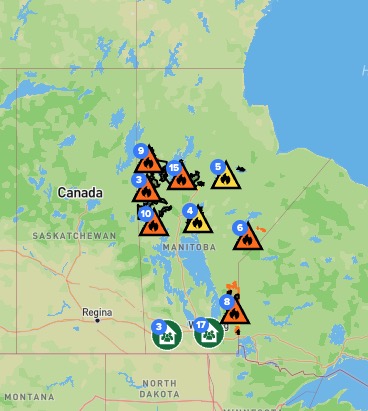 Manitobans should expect higher cabin and home insurance premiums in 2026, one expert says, after a 2025 fire season that destroyed at least 130 properties in the province and forced more than 32,000 people to leave their communities. Owners may also encounter new caps on payouts or exclusions in their policies that won’t cover certain hazards or parts of a property, or may find insurers will not provide coverage at all, said Jason Thistlethwaite, an assistant professor at the University of Waterloo’s school of environment, enterprise and development. “Insurance is a business, and they’re going to be looking to recoup those losses,” said Thistlethwaite, who studies the economic impacts of climate risk and natural disasters.
Manitobans should expect higher cabin and home insurance premiums in 2026, one expert says, after a 2025 fire season that destroyed at least 130 properties in the province and forced more than 32,000 people to leave their communities. Owners may also encounter new caps on payouts or exclusions in their policies that won’t cover certain hazards or parts of a property, or may find insurers will not provide coverage at all, said Jason Thistlethwaite, an assistant professor at the University of Waterloo’s school of environment, enterprise and development. “Insurance is a business, and they’re going to be looking to recoup those losses,” said Thistlethwaite, who studies the economic impacts of climate risk and natural disasters.

 Nine more forestry companies are being supported to modernize, innovate and diversify their product lines and fibre sources to make more high-value, made-in-BC products, and help protect and create jobs. “It’s no secret our forestry sector is facing many challenges, making these investments timely,” said Minister of Forests, Ravi Parmar. …Through the BC Manufacturing Jobs Fund, the Province is contributing $2.5 million to plan or complete capital projects. For example, Canadian Bavarian Millwork and Lumber in Chemainus will receive as much as $1.4 million to help build its new facility. …Additional investments include:
Nine more forestry companies are being supported to modernize, innovate and diversify their product lines and fibre sources to make more high-value, made-in-BC products, and help protect and create jobs. “It’s no secret our forestry sector is facing many challenges, making these investments timely,” said Minister of Forests, Ravi Parmar. …Through the BC Manufacturing Jobs Fund, the Province is contributing $2.5 million to plan or complete capital projects. For example, Canadian Bavarian Millwork and Lumber in Chemainus will receive as much as $1.4 million to help build its new facility. …Additional investments include: CHEMAINUS, BC — Western Forest Products’ value-added division in Chemainus is receiving up to $7.5 million from the province to add two new continuous dry kilns to its manufacturing operations. The investment, from the province’s BC Manufacturing Jobs Fund, will allow WFP’s facility on River Road to expand the production of high-value products and create new opportunities for second-growth hemlock to produce higher-value products, as well as increasing the stability of the forest company’s operations on Vancouver Island. Minister of Jobs and Economic Growth Ravi Kahlon and Forest Minister Ravi Parmar joined Steven Hofer, CEO of WFP, to make the funding announcement, which is expected to strengthen Vancouver Island’s manufacturing sector. In addition, the ministers announced that
CHEMAINUS, BC — Western Forest Products’ value-added division in Chemainus is receiving up to $7.5 million from the province to add two new continuous dry kilns to its manufacturing operations. The investment, from the province’s BC Manufacturing Jobs Fund, will allow WFP’s facility on River Road to expand the production of high-value products and create new opportunities for second-growth hemlock to produce higher-value products, as well as increasing the stability of the forest company’s operations on Vancouver Island. Minister of Jobs and Economic Growth Ravi Kahlon and Forest Minister Ravi Parmar joined Steven Hofer, CEO of WFP, to make the funding announcement, which is expected to strengthen Vancouver Island’s manufacturing sector. In addition, the ministers announced that  For Crofton mill workers it was like getting a lump of coal in their stockings. Last week owners of the Domtar pulp mill announced they were shuttering the operation …Who and what is to blame is a complicated tangle, encompassing questions about the future of the forest industry in this province. …While we must confront these questions, the closure also highlights the dangers of community dependence on a particular operation, or even industry. While the workers will, of course, be the most affected, North Cowichan residents will also feel the pain from the mill closure, as it is the municipality’s single biggest taxpayer. ….We can all hope that there will still be a future for the Crofton mill site… but that’s in no way a given. The municipality will be facing some very difficult decisions about services and what it can afford. The larger community will also feel the loss of all of those well paying jobs.
For Crofton mill workers it was like getting a lump of coal in their stockings. Last week owners of the Domtar pulp mill announced they were shuttering the operation …Who and what is to blame is a complicated tangle, encompassing questions about the future of the forest industry in this province. …While we must confront these questions, the closure also highlights the dangers of community dependence on a particular operation, or even industry. While the workers will, of course, be the most affected, North Cowichan residents will also feel the pain from the mill closure, as it is the municipality’s single biggest taxpayer. ….We can all hope that there will still be a future for the Crofton mill site… but that’s in no way a given. The municipality will be facing some very difficult decisions about services and what it can afford. The larger community will also feel the loss of all of those well paying jobs.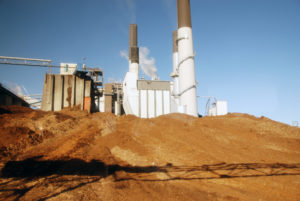 NANAIMO — Exploratory discussions around potentially restricting industrial business activities in Nanaimo irked representatives of Nanaimo Forest Products (NFP), which operates Duke Point’s Harmac Pacific pulp mill. The narrowly approved Nov. 17 notice of motion from Nanaimo city councillor Paul Manly. …Harmac Pacific is actively attempting to rezone a pair of adjacent Phoenix Way lots involving a combined 244 acres bordering Cedar’s Cable Bay Trail. “If this bylaw were to become a reality, it would threaten the ability of our business to continue. …Mayor Leonard Krog is heavily opposed to the motion. “This motion basically says to anyone who wants to invest in this community ‘Don’t bother going to Nanaimo, don’t bother worrying about whether the land is zoned for heavy industry because Nanaimo wants to limit everything that might actually create some real jobs…’” …Harmac Pacific employs roughly 340 employees at its specialty pulp operation, which features a unique employee-owned ownership model.
NANAIMO — Exploratory discussions around potentially restricting industrial business activities in Nanaimo irked representatives of Nanaimo Forest Products (NFP), which operates Duke Point’s Harmac Pacific pulp mill. The narrowly approved Nov. 17 notice of motion from Nanaimo city councillor Paul Manly. …Harmac Pacific is actively attempting to rezone a pair of adjacent Phoenix Way lots involving a combined 244 acres bordering Cedar’s Cable Bay Trail. “If this bylaw were to become a reality, it would threaten the ability of our business to continue. …Mayor Leonard Krog is heavily opposed to the motion. “This motion basically says to anyone who wants to invest in this community ‘Don’t bother going to Nanaimo, don’t bother worrying about whether the land is zoned for heavy industry because Nanaimo wants to limit everything that might actually create some real jobs…’” …Harmac Pacific employs roughly 340 employees at its specialty pulp operation, which features a unique employee-owned ownership model.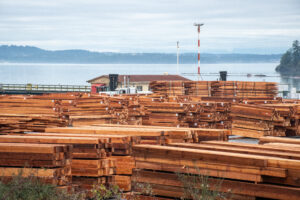 Many laid-off workers at Western Forest Products’ Chemainus sawmill are increasingly frustrated with the company for the delays in the reopening of the mill, and with the state of the coastal forest industry overall. Brian Bull, Randy Robertson and Robert Joyce, who collectively have 95 years working in the forest industry, have been laid off since WFP temporarily curtailed operations at the mill on June 18. WFP recently announced that the shutdown at the mill, which employees approximately 150 workers, would extend into 2026 due to poor market conditions, high American lumber tariffs, and log-supply issues. Robertson said the company has not given the workers any indication of when the mill will reopen. …Bull said the mill’s workers’… employment insurance benefits are running out and they’re only making about half of the money they make at the mill even with the EI benefits.
Many laid-off workers at Western Forest Products’ Chemainus sawmill are increasingly frustrated with the company for the delays in the reopening of the mill, and with the state of the coastal forest industry overall. Brian Bull, Randy Robertson and Robert Joyce, who collectively have 95 years working in the forest industry, have been laid off since WFP temporarily curtailed operations at the mill on June 18. WFP recently announced that the shutdown at the mill, which employees approximately 150 workers, would extend into 2026 due to poor market conditions, high American lumber tariffs, and log-supply issues. Robertson said the company has not given the workers any indication of when the mill will reopen. …Bull said the mill’s workers’… employment insurance benefits are running out and they’re only making about half of the money they make at the mill even with the EI benefits. 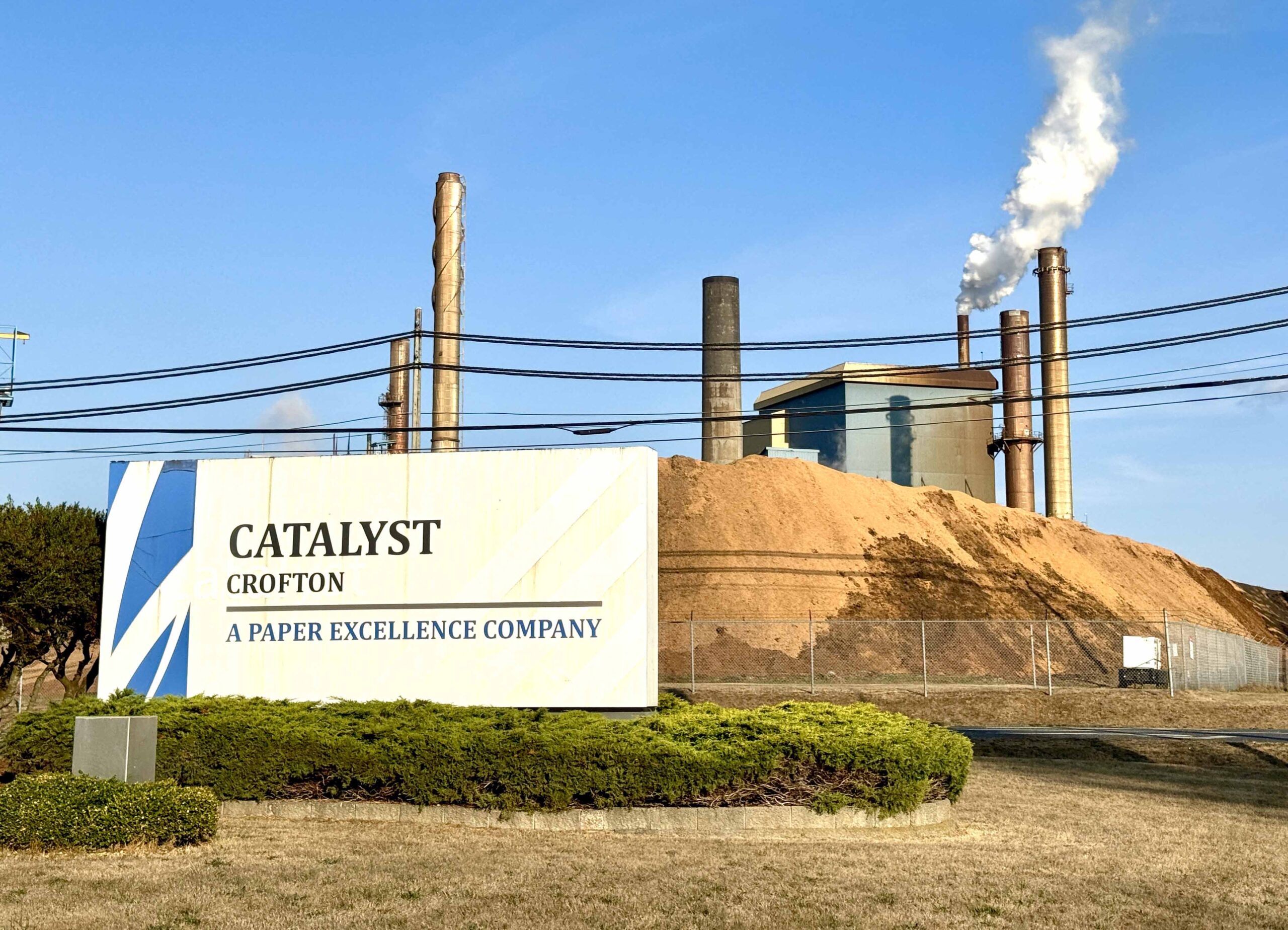 The province has retained an external consultant with expertise in the pulp and paper sector to assess options for the Crofton mill site, B.C.’s Forest Minister Ravi Parmar told North Cowichan’s council during a meeting on Dec. 10. Parmar also discussed the possibility of a new owner acquiring the property to resume pulp and paper production, or repurposing the property for another industrial use, the municipality said in a statement. “Given the significant implications for our community, we have requested that North Cowichan be actively involved at all stages of this work and in any discussions or decisions related to the future of the site,” North Cowichan said. North Cowichan Mayor Rob Douglas said they are continuing to work with the provincial and federal governments to secure transition funding and support for the mill workers.
The province has retained an external consultant with expertise in the pulp and paper sector to assess options for the Crofton mill site, B.C.’s Forest Minister Ravi Parmar told North Cowichan’s council during a meeting on Dec. 10. Parmar also discussed the possibility of a new owner acquiring the property to resume pulp and paper production, or repurposing the property for another industrial use, the municipality said in a statement. “Given the significant implications for our community, we have requested that North Cowichan be actively involved at all stages of this work and in any discussions or decisions related to the future of the site,” North Cowichan said. North Cowichan Mayor Rob Douglas said they are continuing to work with the provincial and federal governments to secure transition funding and support for the mill workers. Join industry, government, First Nations, and community leaders at the 2026 COFI Convention as we focus on rebuilding competitiveness and shaping a more resilient future for BC’s forest sector. British Columbia’s forest sector is at a crossroads — facing tough challenges, but also leading the way in solutions that matter most to our province: housing, wildfire resilience, reconciliation, and building a resilient provincial economy. At the 2026 COFI Convention, themed Forestry is a Solution, leaders from industry, government, First Nations, local government will come together to advance competitiveness and chart a strong, sustainable future for BC’s forest sector. Discounted hotel rates are nearly sold out, book now to secure conference pricing and guarantee your stay. April 8 – 10, 2026 | JW Marriott Parq in Vancouver
Join industry, government, First Nations, and community leaders at the 2026 COFI Convention as we focus on rebuilding competitiveness and shaping a more resilient future for BC’s forest sector. British Columbia’s forest sector is at a crossroads — facing tough challenges, but also leading the way in solutions that matter most to our province: housing, wildfire resilience, reconciliation, and building a resilient provincial economy. At the 2026 COFI Convention, themed Forestry is a Solution, leaders from industry, government, First Nations, local government will come together to advance competitiveness and chart a strong, sustainable future for BC’s forest sector. Discounted hotel rates are nearly sold out, book now to secure conference pricing and guarantee your stay. April 8 – 10, 2026 | JW Marriott Parq in Vancouver Forest Minister Ravi Parmar says proposed new zoning regulations in Nanaimo for heavy industries could have “extreme” consequences for a local pulp and power producer. …A motion by Nanaimo Coun. Paul Manly at a Nov. 17 meeting targets emission-intensive industries such as garbage and waste incineration facilities and chemical, petroleum and LNG plants. …“This is not anti-Harmac,” Manly said in an interview on Friday. …In a letter to Nanaimo’s mayor and council this week, Parmar said the motion sends the wrong signal at a time when the B.C. forest manufacturing industry is in a downward spiral. “This move could result in lost investment, confidence and assuredness in the local forest sector,” said Parmar, noting Harmac Pacific is a key driver of the local forest sector and a major employer in Nanaimo’s economy. “We need to be supporting our forestry operators, not punishing them. This motion is closer to the latter.”
Forest Minister Ravi Parmar says proposed new zoning regulations in Nanaimo for heavy industries could have “extreme” consequences for a local pulp and power producer. …A motion by Nanaimo Coun. Paul Manly at a Nov. 17 meeting targets emission-intensive industries such as garbage and waste incineration facilities and chemical, petroleum and LNG plants. …“This is not anti-Harmac,” Manly said in an interview on Friday. …In a letter to Nanaimo’s mayor and council this week, Parmar said the motion sends the wrong signal at a time when the B.C. forest manufacturing industry is in a downward spiral. “This move could result in lost investment, confidence and assuredness in the local forest sector,” said Parmar, noting Harmac Pacific is a key driver of the local forest sector and a major employer in Nanaimo’s economy. “We need to be supporting our forestry operators, not punishing them. This motion is closer to the latter.”
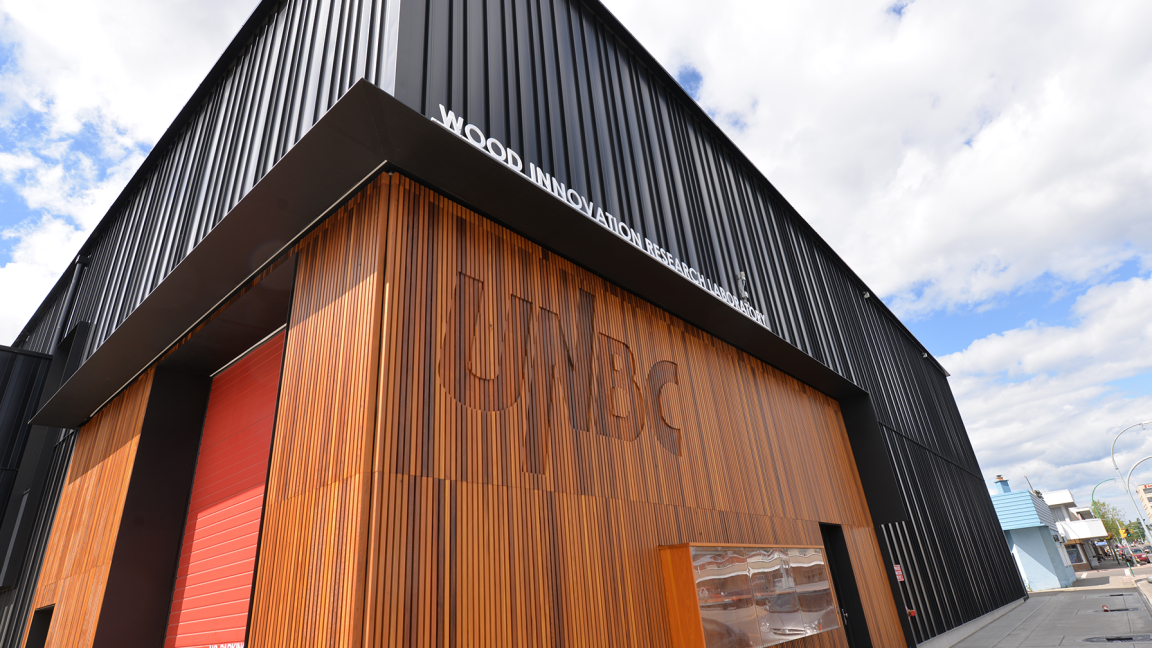

 In 2025, the BC Wildfire Service (BCWS) worked tirelessly with people and communities to fight wildfires and build community resilience throughout the province. “We’re coming off our second-worst wildfire season in Canadian history,” said Ravi Parmar, Minister of Forests. “From technology to equipment and training, all to protect people and communities, the BC Wildfire Service has shown us that they are a global leader in wildfire work. Thanks to the dedicated members working tirelessly to fight the threat of wildfire. In 2026, we will raise the bar even higher. …Since April 1, 2025, more than 1,350 wildfires burned an estimated 886,360 hectares of land in B.C. The 2025 season compared to the past five years:
In 2025, the BC Wildfire Service (BCWS) worked tirelessly with people and communities to fight wildfires and build community resilience throughout the province. “We’re coming off our second-worst wildfire season in Canadian history,” said Ravi Parmar, Minister of Forests. “From technology to equipment and training, all to protect people and communities, the BC Wildfire Service has shown us that they are a global leader in wildfire work. Thanks to the dedicated members working tirelessly to fight the threat of wildfire. In 2026, we will raise the bar even higher. …Since April 1, 2025, more than 1,350 wildfires burned an estimated 886,360 hectares of land in B.C. The 2025 season compared to the past five years: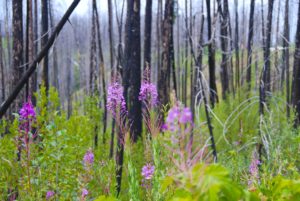 VICTORIA — The BC government says cutting red tape has allowed provincial pulp mills to more than double their use of timber salvaged from forest fires. The Ministry of Forests says in a statement that mills processed more than one million cubic metres of wildfire chips in 2024-25, up from 500,000 cubic metres in 2023, and representing about seven per cent of all processed wood. Forests Minister Ravi Parmar says that BC can’t let anything go to waste, including logs that have been burned in wildfires.” The statement says pulp mills rarely accepted burned timber before 2022, but both government and industry recognized the opportunity of turning wildfire-affected fibre into wood chips. It says that faster permitting and stronger partnerships between government and industry made it even easier to use that type of timber and the work will continue in 2026.
VICTORIA — The BC government says cutting red tape has allowed provincial pulp mills to more than double their use of timber salvaged from forest fires. The Ministry of Forests says in a statement that mills processed more than one million cubic metres of wildfire chips in 2024-25, up from 500,000 cubic metres in 2023, and representing about seven per cent of all processed wood. Forests Minister Ravi Parmar says that BC can’t let anything go to waste, including logs that have been burned in wildfires.” The statement says pulp mills rarely accepted burned timber before 2022, but both government and industry recognized the opportunity of turning wildfire-affected fibre into wood chips. It says that faster permitting and stronger partnerships between government and industry made it even easier to use that type of timber and the work will continue in 2026.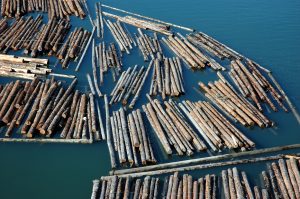

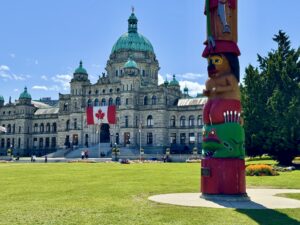 The BC Conservative leader fostered fear and falsehoods in his
The BC Conservative leader fostered fear and falsehoods in his 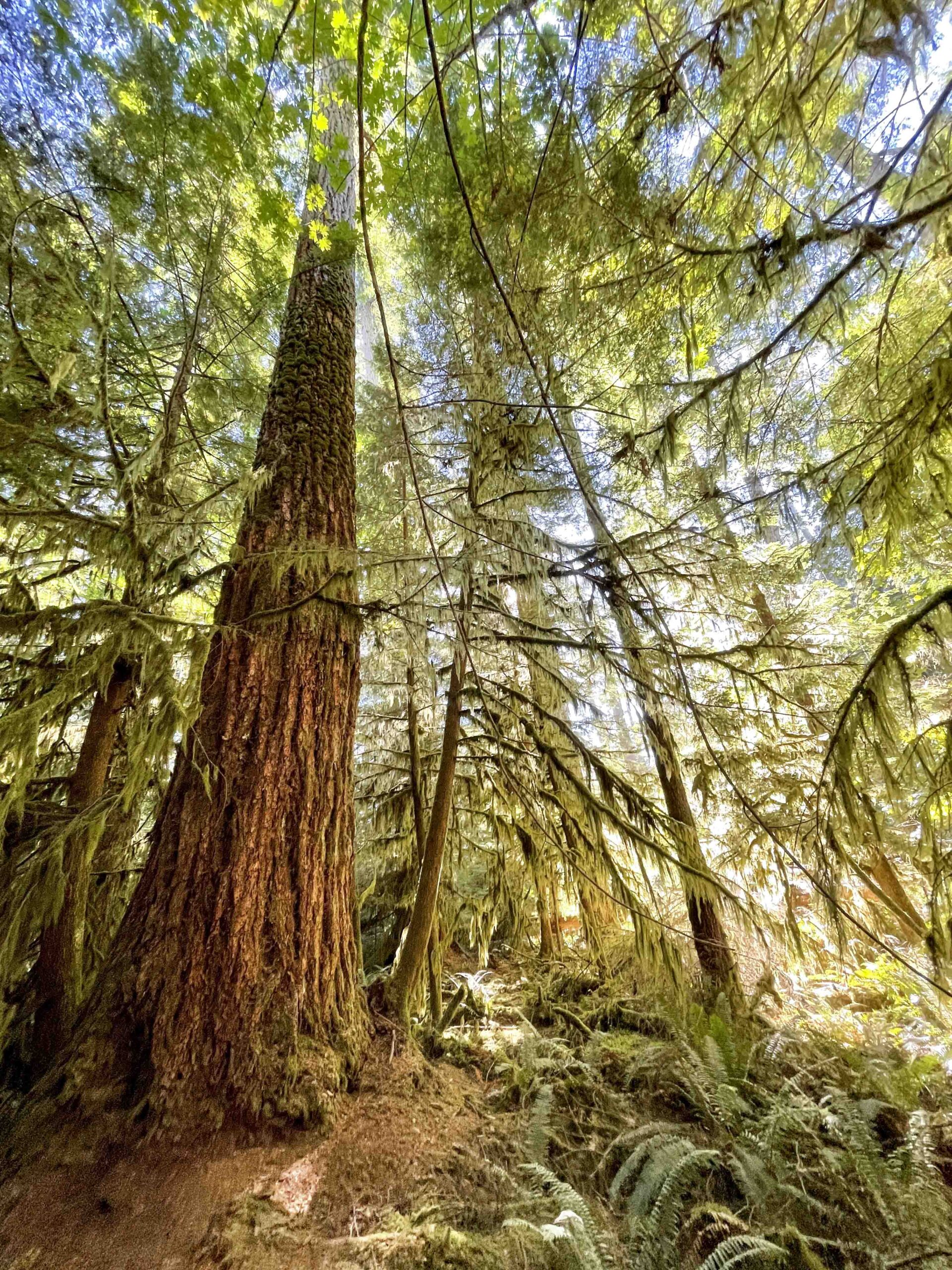 My grandfather, Gordon Gibson Jr., taught me to speak up when I see injustice in the world, and I am seeing it now. I am absolutely furious regarding Premier Eby’s plans to destroy old-growth and primary forests. They are the lungs of our atmosphere, and cutting them down is not only an attack on our future, it’s anti-Canadian. The only possible benefit to the logging would be to make a few people richer, most of whom are not Canadian, and those people do not care about the longevity of our species. We are facing a major extinction event, at the end of which the planet will not be able to support human life. I ask the province to listen to the science, and to care about the people who you are tasked with caring for. Care about our futures, and our dreams. …Stop the deforestation of old growth, and save the lungs of our planet.
My grandfather, Gordon Gibson Jr., taught me to speak up when I see injustice in the world, and I am seeing it now. I am absolutely furious regarding Premier Eby’s plans to destroy old-growth and primary forests. They are the lungs of our atmosphere, and cutting them down is not only an attack on our future, it’s anti-Canadian. The only possible benefit to the logging would be to make a few people richer, most of whom are not Canadian, and those people do not care about the longevity of our species. We are facing a major extinction event, at the end of which the planet will not be able to support human life. I ask the province to listen to the science, and to care about the people who you are tasked with caring for. Care about our futures, and our dreams. …Stop the deforestation of old growth, and save the lungs of our planet.
 Over an hour of discussion followed BC Timber Sales’ (BCTS) presentation at the Sunshine Coast Regional District’s (SCRD) Dec. 11 committee of the whole meeting. …BCTS representatives, a delegation at the committee meeting, faced a direct ask from Gibsons area alternate director Annemarie De Andrade to pause harvesting activities on TA0519, in the Gibsons aquifer recharge area pending further study of the impacts of such logging. “We can continue to listen and continue with a light footprint, but we cannot pause,” was the response from BCTS’s Chinook Business Area timber sales manager Stacey Gould. She explained BCTS has a role as a revenue generator for the province. …That “lighter” BCTS footprint… is havesting about half of the volume it is permitted to on the lower Sunshine Coast. To make up for that, higher levels of harvesting need to be undertaking in other locations.
Over an hour of discussion followed BC Timber Sales’ (BCTS) presentation at the Sunshine Coast Regional District’s (SCRD) Dec. 11 committee of the whole meeting. …BCTS representatives, a delegation at the committee meeting, faced a direct ask from Gibsons area alternate director Annemarie De Andrade to pause harvesting activities on TA0519, in the Gibsons aquifer recharge area pending further study of the impacts of such logging. “We can continue to listen and continue with a light footprint, but we cannot pause,” was the response from BCTS’s Chinook Business Area timber sales manager Stacey Gould. She explained BCTS has a role as a revenue generator for the province. …That “lighter” BCTS footprint… is havesting about half of the volume it is permitted to on the lower Sunshine Coast. To make up for that, higher levels of harvesting need to be undertaking in other locations.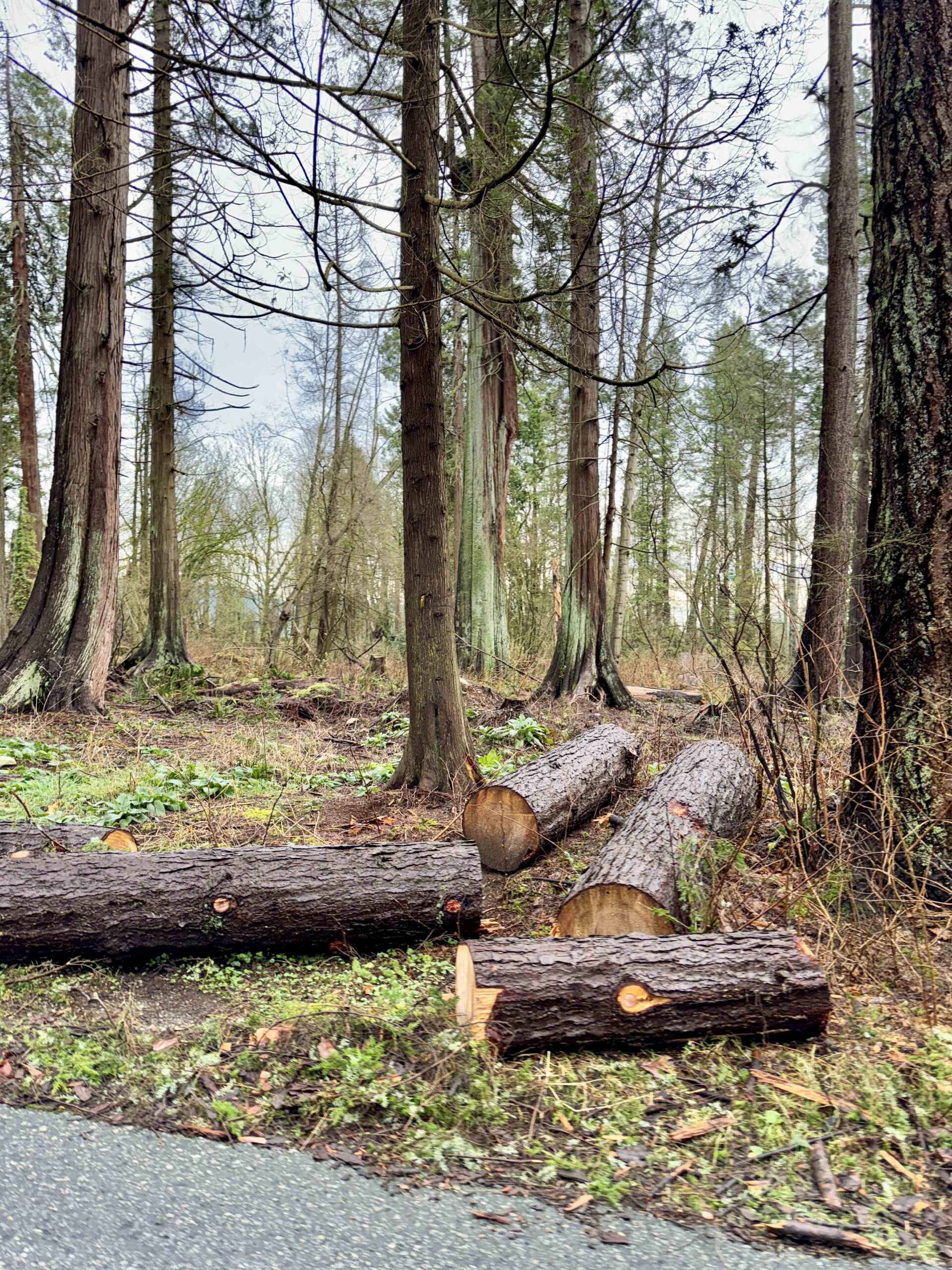 A B.C. court has issued a rebuke to the City of Vancouver, declaring it overstepped its authority when it authorized the cutting down of thousands of trees in Stanley Park without approval from the park board. Handed down Dec. 17, the decision from B.C. Supreme Court Justice Jasvinder Basran analyzed a multi-stage approval to cut down thousands of trees in Vancouver’s largest park. In 2023, the city entered into an $1.9-million supply agreement with B.A. Blackwell and Associates to remove an initial 7,000 trees over six months [due to] a hemlock looper moth infestation… According to Basran’s judicial review, the initial decision to cut down trees in Stanley Park … was made without the proper authority. …The judge found the city circumvented the park board’s authority in the first phase of the tree removal, but that it went through the proper channels to approve the second and third stages of the work.
A B.C. court has issued a rebuke to the City of Vancouver, declaring it overstepped its authority when it authorized the cutting down of thousands of trees in Stanley Park without approval from the park board. Handed down Dec. 17, the decision from B.C. Supreme Court Justice Jasvinder Basran analyzed a multi-stage approval to cut down thousands of trees in Vancouver’s largest park. In 2023, the city entered into an $1.9-million supply agreement with B.A. Blackwell and Associates to remove an initial 7,000 trees over six months [due to] a hemlock looper moth infestation… According to Basran’s judicial review, the initial decision to cut down trees in Stanley Park … was made without the proper authority. …The judge found the city circumvented the park board’s authority in the first phase of the tree removal, but that it went through the proper channels to approve the second and third stages of the work.


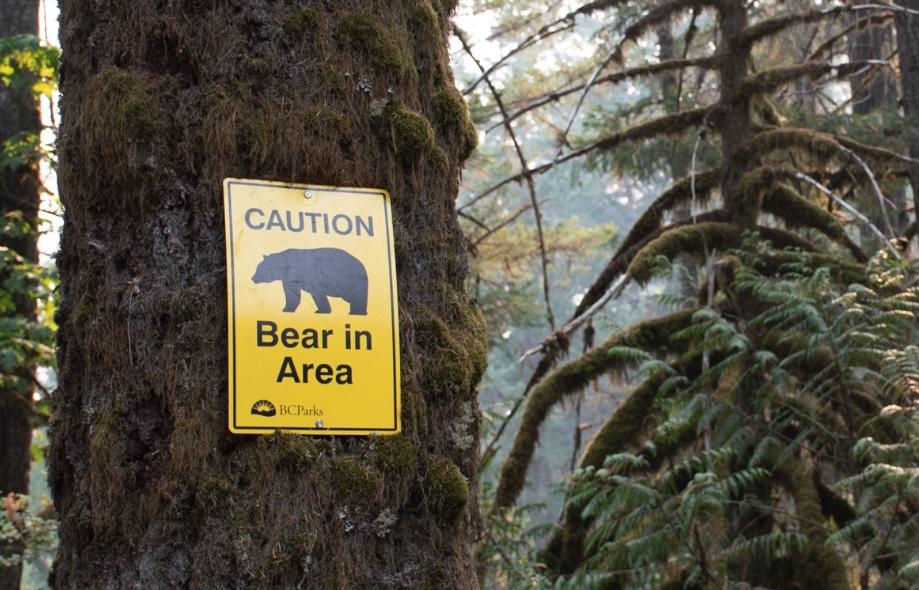 The Alberta government isn’t ruling out lifting a near 20-year ban on hunting grizzly bears, a divisive issue between conservationists, politicians, and hunters. Forestry and Parks Minister Todd Loewen says all options are on the table following several recent bear attacks and close encounters in the province. Grizzlies are being spotted in parts of the province they haven’t inhabited in more than a century. “There’s no plans at this time yet. We don’t want to take anything off the table. I think it would be irresponsible not to have all options on the table so we’re looking at everything,” Loewen said. There has been a ban on hunting grizzly bears in Alberta since 2006. …Loewen says there are several factors that would have to be considered …including the number of bears in the province and recent grizzly-human interactions, and their expansion into the foothills.
The Alberta government isn’t ruling out lifting a near 20-year ban on hunting grizzly bears, a divisive issue between conservationists, politicians, and hunters. Forestry and Parks Minister Todd Loewen says all options are on the table following several recent bear attacks and close encounters in the province. Grizzlies are being spotted in parts of the province they haven’t inhabited in more than a century. “There’s no plans at this time yet. We don’t want to take anything off the table. I think it would be irresponsible not to have all options on the table so we’re looking at everything,” Loewen said. There has been a ban on hunting grizzly bears in Alberta since 2006. …Loewen says there are several factors that would have to be considered …including the number of bears in the province and recent grizzly-human interactions, and their expansion into the foothills.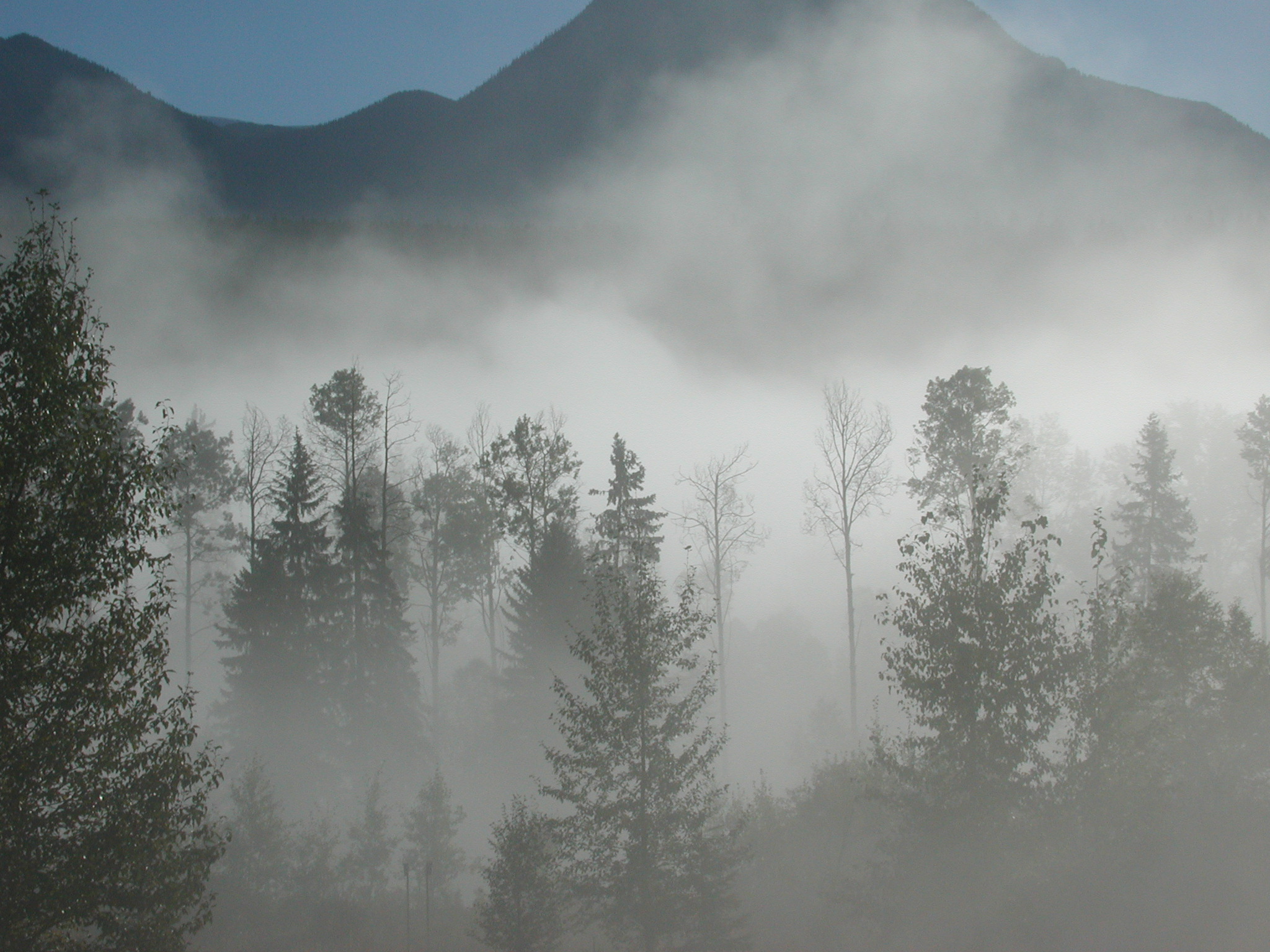 The RCMP made more arrests over the weekend for allegedly breaching the court-ordered injunction at a blockade near a forestry operation in the Carmanah Valley, near Lake Cowichan. A police statement said that on the evening of Dec. 12, while patrolling the injunction area around the Walbran Forest Service Road, police located a cantilever structure across a bridge and a tripod structure in the middle of the roadway a short distance away. The two structures blocked both directions in and out of the cut block where the Tsawak-qin Forestry Limited Partnership and Tsawak-qin Forestry Inc. forest companies were conducting work.
The RCMP made more arrests over the weekend for allegedly breaching the court-ordered injunction at a blockade near a forestry operation in the Carmanah Valley, near Lake Cowichan. A police statement said that on the evening of Dec. 12, while patrolling the injunction area around the Walbran Forest Service Road, police located a cantilever structure across a bridge and a tripod structure in the middle of the roadway a short distance away. The two structures blocked both directions in and out of the cut block where the Tsawak-qin Forestry Limited Partnership and Tsawak-qin Forestry Inc. forest companies were conducting work.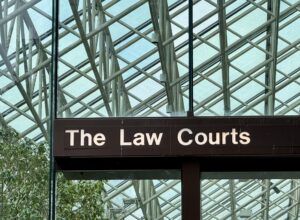 A First Nation is suing the B.C. government alleging it advanced a secret land claim policy to give away rights to its traditional territory, surrender control over lucrative carbon credits, and prevent it from safeguarding threatened caribou. The allegations, made in a Dec. 12 lawsuit filed by Chief Johnny Pierre on behalf of the Tsay Keh Dene First Nation, target the B.C. government’s handling of overlapping land claims—specifically, a policy that allows First Nations to switch between multiple identities to give them the best chance of claiming traditional territory. Tsay Keh Dene says it learned of the alleged government policy in October 2025 after the province confirmed the nation would see a sharp drop in the amount of money it received from a previously negotiated agreement to share revenue from forestry activities. In 2023, the province had quietly started negotiating with the neighbouring Kwadacha Nation to develop a similar agreement, the lawsuit claims.
A First Nation is suing the B.C. government alleging it advanced a secret land claim policy to give away rights to its traditional territory, surrender control over lucrative carbon credits, and prevent it from safeguarding threatened caribou. The allegations, made in a Dec. 12 lawsuit filed by Chief Johnny Pierre on behalf of the Tsay Keh Dene First Nation, target the B.C. government’s handling of overlapping land claims—specifically, a policy that allows First Nations to switch between multiple identities to give them the best chance of claiming traditional territory. Tsay Keh Dene says it learned of the alleged government policy in October 2025 after the province confirmed the nation would see a sharp drop in the amount of money it received from a previously negotiated agreement to share revenue from forestry activities. In 2023, the province had quietly started negotiating with the neighbouring Kwadacha Nation to develop a similar agreement, the lawsuit claims.


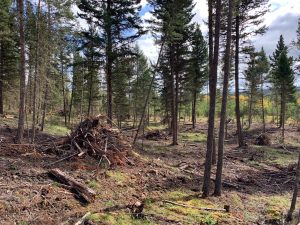


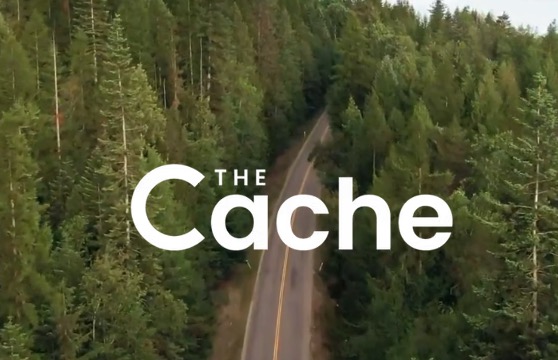 The Cache
The Cache At its November 2025 meeting, WorkSafeBC’s Board of Directors approved amendments to the Occupational Health and Safety Regulation and the Prevention Manual. The amendments relate to
At its November 2025 meeting, WorkSafeBC’s Board of Directors approved amendments to the Occupational Health and Safety Regulation and the Prevention Manual. The amendments relate to